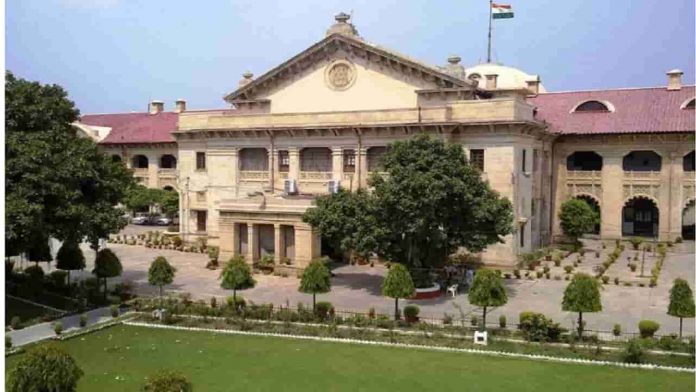The Allahabad High Court on Wednesday observed that an informant, who feels that a proper or fair investigation is not being done by the investigating officer may approach the Magistrate for relief by moving an application under Section 156(3) of the Code of Criminal Procedure.
The division bench of Justices Surya Prakash Kesarwani and Shamim Ahmed passed this order while hearing a petition filed by Ajay Kumar Pandey. The controversy involved in the writ Petitions are Sections 2(c), 2(d), 2(g), 2(h), 36 and 156, Cr.P.C.
The writ petitions have been filed by the petitioners praying for a direction to the concerned police authorities for fair and proper investigation in criminal cases in which investigation is going on.
The petitioners are justified to file writ petitions under Article 226 of the Constitution of India without approaching the concerned Magistrate under Section 156(3) of the Code of Criminal Procedure, 1973 for fair and proper investigation.
Counsel for the petitioners submitted that an important facet of the rule of law is that in the criminal justice system, investigation into the crime should be fair, in accordance with law and should not be tainted.
Therefore, if the investigating authority is not fairly and properly investigating into crime then, this Court has power to issue appropriate directions under Article 226 of the Constitution of India.
They further submitted that once the power is available to this Court, there is no need to invoke the powers of the concerned Magistrate under Section 156(3) of the Code of Criminal Procedure, 1973.
The A.G.A. submitted that the Magistrate has the power under Section 156(3) of the CrPC to order a fair and proper investigation and, therefore, the petitioners should have approached the concerned Magistrate for redressal of their grievances.
The Court held that the criminal justice system mandates that any investigation into the crime should be fair, in accordance with law and should not be tainted.
“It is equally important that interested or influential persons are not able to misdirect or hijack the investigation, so as to throttle a fair investigation resulting in the offenders escaping punitive course of law. These are important facets of the rule of law. Breach of rule of law amounts to negation of equality under Article 14 of the Constitution of India,” said the Court.
The bench stated that Article 21 of the Constitution of India makes it clear that the procedure in criminal trials must be right, just and fair and not arbitrary, fanciful or oppressive.
A fair trial includes fair investigation as reflected from Articles 20 and 21 of the Constitution. If the investigation is neither effective nor purposeful nor objective nor fair, the courts may if considered necessary, may order fair investigation, further investigation or re-investigation as the case may be to discover the truth so as to prevent miscarriage of justice.
The Court advised the petitioners to approach the concerned Magistrate and dismissed all the petitions accordingly.
“In view of the discussions made above, we hold that if an informant/Petitioner is aggrieved that proper/ fair investigation is not being done by the investigating officer, then he/ she may approach the concerned Magistrate by moving an application under Section 156(3) Cr.P.C. for appropriate orders instead of invoking writ jurisdiction under Article 226 of the Constitution of India”. the order reads.
Read Also: Tablighi Jamaat case: Supreme Court asks Centre if it can control inflammatory TV shows


